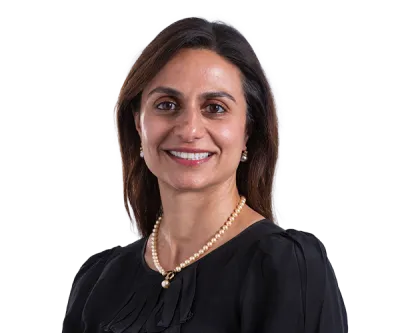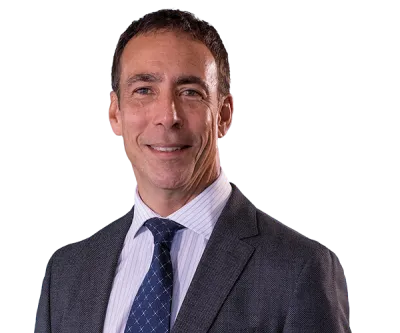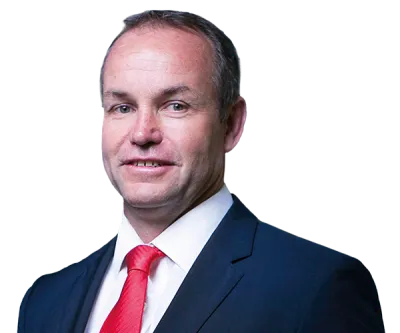Investment funds in the British Virgin Islands
The British Virgin Islands (“BVI”) is a long-standing jurisdiction of choice for the incorporation of investment funds. This is due to the familiarity and stability of the BVI’s English common law based legal system, tax neutral treatment and the business friendly flexibility of the BVI’s regulatory and judicial regime. Funds in the British Virgin Islands are regulated by the Financial Services Commission (the “FSC”).
The British Virgin Islands (“BVI”) is a long-standing jurisdiction of choice for the incorporation of investment funds. This is due to the familiarity and stability of the BVI’s English common law based legal system, tax neutral treatment and the business friendly flexibility of the BVI’s regulatory and judicial regime. Funds in the British Virgin Islands are regulated by the Financial Services Commission (the “FSC”).
BVI Fund structuring
The majority of open-ended BVI funds are incorporated as companies under the BVI Business Companies Act (the “Act”), as amended. This provides for a very flexible structure as there is no concept of authorised capital or share capital under BVI law and, subject to the memorandum and articles of association of the BVI company, shares may be issued with no par value. The Act also provides for segregated portfolio companies with statutory segregation of assets and liabilities between segregated portfolios established within the company. Segregated portfolio companies are popular for multi-class or umbrella funds in which two or more segregated portfolios use different investment strategies.
Alternatively, funds (generally closed-ended funds) may be incorporated as international limited partnerships, which do not have a separate legal personality distinct from that of the partners; making the general partner ultimately responsible for the debts and obligations of the partnership (a limited partner is not liable for the debts and obligations of a partnership beyond the amount of its contributed partnership interest). For a more detailed comparison of the company and international limited partnership structures please see our legal guide “Private Equity Fund Structuring in the BVI”.
Types of BVI funds
In addition to the recognition by the FSC of foreign incorporated funds, there are currently 6 types of fund which may operate and are regulated in the BVI:
Open-ended funds
- private funds
- professional funds
- public funds
- incubator funds
- approved funds
Closed-ended funds
- private investment funds (PIF)
We set out below a brief description of the key features of each type of fund, however for a more detailed comparison between open-ended funds please see Schedule 1.
Private funds
Private funds are open-ended funds regulated in the BVI which do not have a minimum initial investment amount for each investor or any restrictions relating to “professional” or “sophisticated” investors. In order to qualify as a private fund, the total number of investors must be limited to 50 or invitations to subscribe for fund interests issued by the fund must be made on a private basis only.
Professional funds
Professional funds are the most popular type of open-ended fund in the BVI. In order to qualify as a professional fund, fund interests must only be issued to professional investors or exempted investors. The minimum initial investment for a professional investor must be at least US$100,000. There is no limit on the number of investors who may invest in a professional fund.
A professional investor is a person:
- whose ordinary business involves the acquisition or disposal of property of the same kind as the property of the fund; or
- who, whether individually or jointly with a spouse, has a net worth in excess of US$1,000,000.
Exempted investors, on the other hand, do not have a required minimum initial investment. Exempted investors include:
- the manager, administrator, promoter or underwriter of the fund; or
- any employee of the manager of the fund.
Public funds
Public funds are open-ended funds generally viewed as a retail product and are therefore subject to a considerably higher regulatory burden than that applicable to other types of funds. However, a public fund is not subject to any restrictions as to the categories or numbers of investors who may invest in the fund.
Incubator and approved funds
Incubator and approved funds are designed to provide a fast and cost-effective method for managers to launch open-ended funds, by allowing qualifying open-ended funds to be approved to conduct business within a lighter regulatory regime. It is possible to commence business as an approved or an incubator fund two business days following the receipt by the FSC of a completed application in respect of the fund.
Incubator funds are suitable for sophisticated private investors only. The total number of investors is limited to a maximum of 20 and the net assets of the fund must not exceed $20,000,000 or its equivalent in any other currency. Incubator funds are not required to have an administrator but are limited to an approved period of two years (with the possible extension for an additional 12 months upon application to the FSC). At the end of this period, an incubator fund must either terminate its business or apply to the FSC to be recognised as a private fund or professional fund or to be approved as an approved fund.
Approved funds are designed for smaller strategies and friends and families funds. The total number of investors is limited to 20 and the net assets of the fund must not exceed US$100,000,000 or its equivalent in any other currency. An approved fund must have an administrator but is not required to have a manager or a custodian and no audit is required. The validity period for an approved fund is unlimited.
Where an incubator or an approved fund exceeds the permitted amount of investments or number of investors, the FSC may direct that the fund converts into a private fund or a professional fund (or, in the case of an incubator fund, into an approved fund) or that the fund is liquidated or ceases to carry on fund business.
Private investment funds (PIF)
The Private investment fund regime was designed to cater for closed-ended funds (whether structured as a BVI business company or international limited partnership). To qualify as a private investment fund, the constitutional documents must specify that (i) the fund is not authorised to have more than 50 investors, (ii) invitations to subscribe for fund interests issued by the fund must be made on a private basis only, or (iii) fund interests must only be issued to professional investors or exempted investors (see respective definitions above), with the minimum initial investment for a professional investor being at least US$100,000.
Authorised representatives
All funds recognised or registered in the BVI (and all persons licensed to carry on regulated investment business in or from within the BVI) must appoint and at all times have an authorised representative who shall be a person or entity resident in the BVI and certified by the FSC, unless the fund has a significant management presence in the BVI. CO Authorised Representative Ltd. can provide this service if required. The functions of the authorised representative are to:
- act as the main intermediary between the fund and the FSC;
- accept service of notices and other documents on behalf of the fund; and
- keep such records or copies of such records as may be prescribed from time to time.
All documents to be submitted to the FSC by the fund must be submitted by its authorised representative and all fees to be paid by a fund must be paid by its authorised representative on behalf of the fund.
For further information and assistance in respect of fund structuring in the BVI or to set up a fund in the BVI, please contact the Carey Olsen team in your region.
Schedule 1 - Comparison of open-ended funds
Please click here to view the comparison table of open ended funds
Frequently asked questions
Why choose the BVI?
The BVI is a leading offshore financial centre, with decades of experience in structuring investment funds. The BVI offers a variety of fund types, including regulated open-ended professional funds, private funds, public funds, approved funds, incubator funds and closed-ended funds (including regulated private investment funds (PIFs)). This allows our clients to choose the right level of regulation, depending on their type of investors and investment strategy. BVI funds are not subject to local corporate income tax or capital gains tax. This makes the jurisdiction tax-neutral and efficient for pooling capital from international investors. Compared with other jurisdictions, the BVI offers a cost-efficient setup and relatively low ongoing maintenance fees. This is especially attractive to emerging managers and smaller funds. BVI funds are widely recognised and accepted by investors, banks, and service providers around the world.
Which authority regulates investment funds in the BVI?
The BVI Financial Services Commission (FSC) is the independent regulatory authority responsible for supervising and licensing funds in the BVI. The FSC oversees compliance with statutory and regulatory requirements, ensures adherence to international standards (such as anti-money laundering and counter-terrorist financing obligations), and promotes the integrity and stability of the BVI as a global financial centre.
What types of investment funds are available in the BVI?
There are two main regimes: (1) open-ended funds, such as private funds, professional funds, public funds, incubator funds, and approved funds, each tailored to different investor types and regulatory obligations; and (2) closed-ended funds, which are generally unregulated, other than PIFs. For more information about the different types of funds, please click here, which will take you to our fund comparison guide.
Open-Ended Funds
Investors have the right to redeem their fund interests on demand, subject to the relevant commercial terms of the fund, which usually include redemption notices, gates, lock-up periods and suspensions. Typically, open-ended funds trade liquid assets that are easier to redeem. For more information, please see out Funds Guide.
Closed-Ended Funds
Investors do not have the right to redeem their fund interests on demand - investments are typically locked in for a fixed term. Close-ended funds are commonly used for illiquid assets such as real estate. Closed-ended funds are not regulated, other than PIFs, which are used for collective investment, with a diversification of portfolio risk. For more information, please see our PIF Guide.
I wish to set up a fund with a small number of investors quickly and cost efficiently. Is the BVI right for me?
Yes - the BVI is a great cost-effective option for emerging investment managers that have a small number of investors. In fact, the BVI has designed two funds, specifically for this market:
|
Yes - the BVI is a great cost-effective option for emerging investment managers that have a small number of investors. In fact, the BVI has designed two funds, specifically for this market:
|
What is the most popular fund type in the BVI?
Almost 70% of the regulated funds in the BVI are professional funds, making them our most popular fund offering in the BVI. Their popularity is due to their flexibility and sophistication of the fund product as there is no restriction on the number of investors and no limit on assets under management. They do however need a minimum investment of US$100,000 (or other currency equivalent), which is why they are popular with high-net-worth individuals and professional investors. A professional fund can launch quickly and can carry on its business (or manage and administer its affairs) for 21 days before being recognised by the FSC. Whilst a professional fund must have an administrator and an investment manager, it is possible to obtain an exemption from requirement to appoint a custodian.
However, we are seeing a shift in the funds market, with the newer fund models (incubator funds and approved funds) proving to be incredibly popular. Approved funds are popular with smaller, private offerings or friends, who use them as a family fund. Incubator funds are popular with start-up managers (particularly in the fintech sector) who want to keep costs down whilst they build a track record and make the fund viable in the long term. Meanwhile public funds remain popular with managers looking to make retail offerings and private funds remain popular for friends and for more traditional family offerings.
Can I set up an investment manager in the BVI for my Fund?
Yes. An approved manager is a fantastic option, designed to provide a cost-effective and flexible licensing option for investment managers and advisers. It allows managers of private/professional funds domiciled in the BVI (or in certain recognised jurisdictions, including the Cayman Islands) to operate under a lighter-touch regulatory regime. Approved Managers can manage aggregate assets of up to US$400 million (open-ended funds) or US$1 billion (closed-ended funds). This regime has become particularly attractive for start-up and mid-sized managers, offering regulatory credibility, lower costs, and operational efficiency, whilst still being supervised by the FSC. Form more information, please see our Approved Manager Guide.







